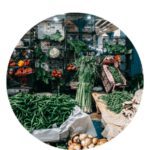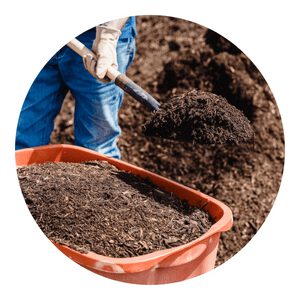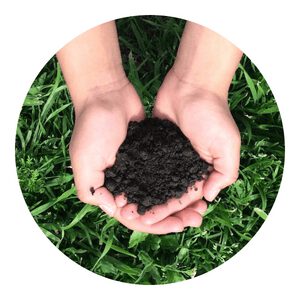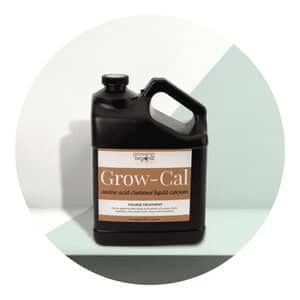Georgia's Garden: The Best Fruits and Veggies for Your Backyard
It’s no secret that Georgia is known for its fruitful agricultural industry.
From juicy peaches to crisp apples, the state has a long-standing history of providing delicious fruits and vegetables to its citizens and beyond.
For those looking to bring some of that bounty into their own backyard, Georgia’s Garden: The Best Fruits and Veggies for Your Backyard provides an overview of the most popular varieties available to grow in the Peach State.

Georgia
Georgia's Garden
Georgia’s Garden: The Best Fruits and Veggies for Your Backyard
Gardening is a great way to get outdoors, enjoy the fresh air, and add some beautiful flowers or tasty vegetables to your backyard. Georgia has a mild climate that makes it ideal for growing fruits and vegetables in the garden. Here are some of the best produce you can grow in your backyard if you live in Georgia.
Tomatoes are one of the top picks for gardening in Georgia because they can be grown from seedlings and thrive in this warm climate. With soil that is fertile and moist, tomatoes will thrive with minimal effort on your part. You can also grow peppers, cucumbers, eggplants, summer squash, green beans and more! Planting herbs like basil, oregano and rosemary will help to attract beneficial insects like pollinators while adding flavor to your meals.
Varieties of Fruits & Veggies for Your Backyard
When it comes to growing your own fruits and veggies, Georgia’s garden offers a wide array of options. From juicy berries to root vegetables, there are plenty of choices for the backyard gardener. Whether you’re looking for something easy to manage or something that can grow in any climate, Georgia has something perfect for you.
For those who want an easy-to-grow option, blueberries and raspberries are a great choice. With their sweet taste and vibrant colors, these fruits are sure to make your backyard look beautiful while also giving it a delicious flavor. Plus, they provide an abundance of vitamins, minerals and antioxidants that will help keep you healthy all year round.
If you prefer to add some root vegetables into the mix then consider sweet potatoes or beets.
Fruits to Grow in Georgia
If you live in the peach state of Georgia, chances are you’re looking for ways to maximize your backyard garden.
Luckily, there’s an abundance of fruits and vegetables that are suitable for Georgia’s climate. In this article, we’ll explore the best fruits to grow in Georgia.
From sweet strawberries to juicy peaches, many delicious and nutritious fruits can be grown throughout the state. Fruits like apples and pears tend to grow best in northern parts of Georgia due to cooler temperatures, but these can also be successful down south if given extra care. Blueberries thrive in sandy soils with acidity levels between 4-6 pH and require little maintenance aside from regular pruning. Grapes do well along the coast thanks to its mild climate, while figs prefer full sun exposure with plenty of protection from strong winds in more temperate climates.
Peaches
Peaches have long been a favorite fruit for many people looking to enjoy the sweet flavors and versatility of this summertime treat.
From pies to jams, peaches are a great addition to any backyard garden.
Those located in the southeastern United States, particularly in Georgia, are fortunate enough to be able to grow these delicious fruits with ease.
Georgia is known as the Peach State due in part to its widespread production and use of peaches each year.
With its mild climate and ample sunshine, Georgia provides an ideal environment for growing these perennial stone fruits.
Peaches thrive in warm temperatures, so they need plenty of sun exposure during the day and protection from frost at night.
Once planted correctly and harvested at peak ripeness, peaches can bring delicious flavor and nutrition into any home garden or farmer’s market stand.
The best fruits and veggies fill Georgia's garden, A delightful sight both near and far. Apples and pears for morning noshing, Carrots turn that veggie boredom dashing. Try some squash or cucumbers too, Easy to grow in your own backyard view. Early tomatoes red and juicy, Georgia's garden provides the best bounty!
Chappy The Gardener
Blueberries
Blueberries are one of the most popular fruits to grow in a backyard garden, and for good reason!
Not only do they require minimal care and maintenance, but they also produce delicious berries that can be eaten fresh or used in many recipes.
Best of all, blueberries are incredibly nutritious and offer a wide range of health benefits.
In Georgia’s warm climate, blueberry bushes thrive and can produce an abundant harvest with very little effort from the gardener.
Blueberries need well-draining soil that is high in organic matter; if your soil is lacking either of these components then consider amending it with compost or other organic materials before planting.
Once established, they require occasional pruning to maintain size and shape as well as regular watering during dry spells.
With proper care and attention, blueberries can be enjoyed every summer for many years!
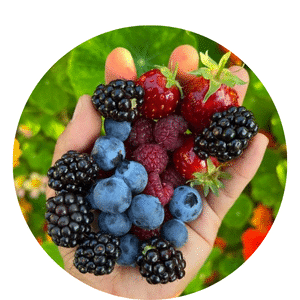
Strawberries
Strawberries are some of the most popular fruits grown in backyards across the country.
Bursting with juicy flavor, these sweet and tart berries can easily be grown in your own backyard garden.
In Georgia, the temperate climate and long growing season provide an ideal environment to cultivate a bountiful crop of delicious strawberries.
The strawberry is considered a cool-season crop, so it’s best to plant them in early spring as soon as you can work the soil.
Starting with bare root plants or crowns will produce fruit within weeks after planting, while seeds will take longer to reach maturity but have a stronger yield potential.
When planted properly, you’ll have lush green plants covered with fragrant white flowers that later give way to plump red berries that can be harvested over several months.
Apples
Apples are a classic favorite for many gardeners, and Georgia is no exception.
Whether it’s the delicious Honeycrisp or the tart Granny Smith, apples are sure to please any palate.
Not only are they delicious, but they’re also easy to grow in your backyard if you have the right conditions.
Here in Georgia, there’s an abundance of apple trees that thrive in our climate and soil, making them ideal for gardeners of all skill levels.
When choosing fruit trees for your backyard oasis, it’s important to consider the growing conditions and overall maintenance required; fortunately, Apple trees require minimal upkeep and can survive extreme temperatures with proper care.
Apples will need plenty of sun exposure and regular watering during dry spells; however, too much water can cause root rot so be mindful when watering your plants!
Plums
Plums are a beloved fruit that is enjoyed by many during the summer months.
This juicy, sweet treat has been cultivated for centuries and is easy to find in markets worldwide.
Not only are they delicious but they can also be grown in your own backyard garden!
Plums make the perfect addition to any home garden because of their hardiness and ability to thrive in various climates.
Plums come in various colors and sizes, including red, purple, green, yellow, black and blue varieties.
Depending on the variety you choose, plums can bear fruit anywhere from late spring through early fall.
All plum trees require some pruning throughout the growing season to ensure healthy production of fruit year after year.
Not only are plums packed with flavor but they deliver an array of essential vitamins and minerals for optimal health benefits as well.
Vegetables to Grow in Georgia
Growing vegetables in Georgia is not difficult, and the mild climate makes it ideal for cultivating a variety of tasty and nutritious veggies.
Many fruits and vegetables thrive in the region, but some are best suited to Georgia’s environment.
Here’s a look at some of the most popular vegetables that can be grown in Georgia:
Tomatoes
Tomatoes are one of the most popular fruits and vegetables grown in home gardens across the country.
Georgia is no exception to this rule, with its mild climate and long growing season providing ideal conditions for raising a variety of tomato varieties.
From small cherry tomatoes to beefsteak tomatoes, there’s something for every taste and size garden.
When planting tomatoes in Georgia, it’s important to choose varieties that will do well in hot summers and mild winters.
Early-maturing hybrids such as ‘Early Girl’ or ‘Celebrity’ have been bred to ripen quickly even when temperatures rise during summer months, while late-maturing heirlooms like ‘Brandywine’ or ‘Cherokee Purple’ can be harvested through much of autumn.
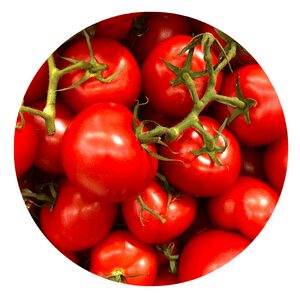
Peppers
Peppers are a favorite vegetable for many gardeners in the state of Georgia.
These vegetables come in all shapes, sizes, and colors and can add a delicious crunch to salads, sandwiches, and more.
Growing peppers is easy with the right conditions and care, meaning Georgians can enjoy these yummy veggies from their very own backyard gardens.
The best kinds of peppers for growing in Georgia’s warm climate include bell, banana sweet pepper varieties.
Bell peppers grow best when planted outdoors after the last frost has passed, while banana sweet peppers should be started indoors or purchased as seedlings from local nurseries before being transplanted outdoors.
If you’re looking for something extra spicy to try in your garden, consider jalapeno or habanero pepper plants; although they require more maintenance than other types of peppers due to their sensitivity to temperature changes.
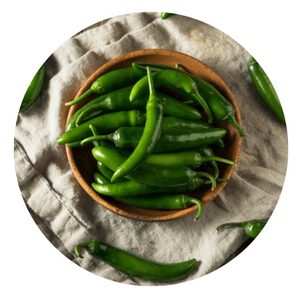
Eggplants
Eggplants are one of the most popular fruits and vegetables in Georgia.
Not only are they highly nutritious, but they also offer a unique flavor that’s impossible to find anywhere else.
Eggplants come in many shapes and sizes, making them ideal for any backyard or container garden. They can be grown from seedlings or planted directly into the ground with ease.
When growing eggplants, it is important to consider the amount of sunshine needed for successful growth – too much sun can cause stress on the plants and reduce yields.
The soil should also be well-draining and rich in nutrients for best results.
Eggplants require an ample supply of water, so it is best practice to water them regularly throughout their entire growing season.
Additionally, adding fertilizer every few weeks will help promote strong plant growth and a plentiful harvest at season’s end.

Squash
Squash is one of the most rewarding vegetables to grow in your own backyard garden.
Whether it’s zucchini, butternut squash, or even spaghetti squash, growing a variety of squash can provide delicious additions to any family meal.
Not only are they easy to grow and tend to, but they have some amazing health benefits as well!
For starters, all types of squash are incredibly nutrient-dense.
They contain important vitamins and minerals like Vitamin A & C that help support healthy vision and skin; magnesium for muscle relaxation; potassium for nerve transmission & blood pressure regulation; and fiber for digestive health.
Squash also contains carotenoids which help protect against inflammation-causing free radicals in the body.
All these nutrients packed into one vegetable make it an invaluable part of a healthy diet!
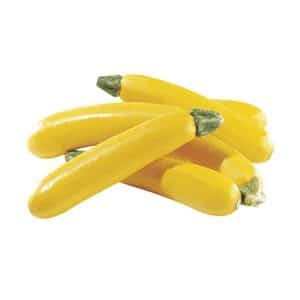
Okra
Okra is an incredibly versatile and popular vegetable that can be found in many southern dishes.
Originally from Africa, it has been grown in the United States since the 1700’s and has become a staple crop for gardeners throughout the south.
Georgia is no exception – its warm climate and plentiful sunshine make it ideal for okra production.
In Georgia, okra is usually planted in early spring when temperatures reach around 70 degrees Fahrenheit during the day.
The plant grows easily and quickly, with mature pods ready to harvest between two to three months after planting.
Depending on how much of a harvest you want, plan on having anywhere between four to six plants per person or family member who will consume them regularly.
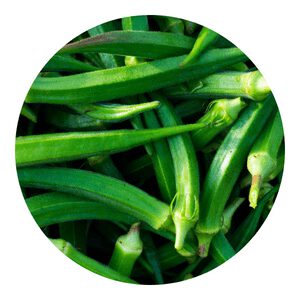
Does basil need to be organic?
Lorem ipsum dolor sit amet, consectetur adipiscing elit. Ut elit tellus, luctus nec ullamcorper mattis, pulvinar dapibus leo.
Does basil need to be organic?
Lorem ipsum dolor sit amet, consectetur adipiscing elit. Ut elit tellus, luctus nec ullamcorper mattis, pulvinar dapibus leo.
Does basil need to be organic?
Lorem ipsum dolor sit amet, consectetur adipiscing elit. Ut elit tellus, luctus nec ullamcorper mattis, pulvinar dapibus leo.
Does basil need to be organic?
Lorem ipsum dolor sit amet, consectetur adipiscing elit. Ut elit tellus, luctus nec ullamcorper mattis, pulvinar dapibus leo.
Does basil need to be organic?
Lorem ipsum dolor sit amet, consectetur adipiscing elit. Ut elit tellus, luctus nec ullamcorper mattis, pulvinar dapibus leo.
Does basil need to be organic?
Lorem ipsum dolor sit amet, consectetur adipiscing elit. Ut elit tellus, luctus nec ullamcorper mattis, pulvinar dapibus leo.
Does basil need to be organic?
Lorem ipsum dolor sit amet, consectetur adipiscing elit. Ut elit tellus, luctus nec ullamcorper mattis, pulvinar dapibus leo.
Does basil need to be organic?
IV. Tips for Successful Gardening in Georgia
Gardening can be a fun and rewarding hobby, but it requires the right knowledge and preparation to have the best results. Fortunately, Georgia is an ideal place for gardening with its warm climate and fertile soil. Here are some tips to help you get started on your own garden in the Peach State.
Firstly, know which plants will thrive in Georgia’s temperate climate. Generally, cool-weather crops such as spinach, kale, broccoli and cauliflower do well from fall through early spring; while tomatoes, peppers, squash and cucumber are good picks for late spring through summer months. Also consider what works best for your yard: full sun or part shade? Knowing this ahead of time allows you to select crops that are well suited for your space.
Choose a location that gets plenty of sun
When considering which fruits and vegetables to grow in your backyard, it’s important to choose a location that gets plenty of sun. A good rule of thumb is to select a spot that receives full sun for at least 6 hours each day. This can be difficult during the winter months when the days are shorter; however, some plants will still thrive in partial shade. Additionally, if you have an area with direct sunlight for only 4-5 hours each day, you may want to opt for leafy greens instead of fruiting crops like tomatoes or peppers.
Sunlight will help ensure that your plants get enough energy from photosynthesis and allows them to grow strong and healthy. It also helps keep pests away by discouraging fungal growth on leaves and improving air circulation within the garden space.
Pay attention to watering needs and soil quality
A successful backyard garden starts with paying attention to your soil and watering needs. Georgia’s climate has unique requirements for growing fruits and vegetables, so it’s important to know the best techniques to make sure your plants thrive. A good way to start is by testing the pH level of your soil, as this helps determine how much fertilizer you should add or if any amendments need to be made before planting. Additionally, be mindful of how much water is needed in order for plants to grow and develop properly; too little or too much can ruin a crop.
In addition to understanding the importance of soil quality and proper watering, familiarizing yourself with what grows best in Georgia will help ensure a high-yielding garden.
Use mulch to help retain moisture and control weeds
Mulch is an essential part of any backyard garden. Not only does it help retain moisture and keep weeds at bay, but it adds a pop of color and texture to your outdoor space. For Georgia’s Garden: The Best Fruits and Veggies for Your Backyard, we’re discussing why mulch is an excellent choice for your vegetable patch or flower bed.
Using mulch can help keep soil temperatures consistent in the summer heat, allowing plants to reach their full potential. It also helps prevent water loss from the ground, making sure that all of your hard-earned fruits and veggies are receiving enough hydration throughout the season. Additionally, laying down a layer of mulch keeps pesky weeds away—when combined with regularly tending to your garden, you can be sure that only the plants you want will thrive!
Plant a mix of annual and perennial vegetables to have a continuous harvest throughout the year
The idea of having a backyard garden full of fresh fruits and vegetables can be overwhelming when you’re just starting out. Growing your own food is a rewarding experience, but it can take some time to learn the different techniques necessary for success. One way to help ensure that you have a successful harvest all season long is to plant both annual and perennial vegetables in your garden.
Annual plants such as tomatoes, peppers, squash, and cucumbers are great for getting an abundant harvest each year while perennial veggies like onions, garlic, potatoes, rhubarb and asparagus will bring back more produce with each passing season. Planting both types of fruits and veggies will ensure that you have something growing in the garden from early spring through late fall.
In conclusion, Georgia’s Garden offers a wide variety of fruits and vegetables that are perfect for any backyard garden.
With the right combination of soil, water, and sun, anyone can successfully grow a variety of delicious produce in their own backyard.
Not only does this provide individuals fresh, organic food for themselves and their families, but it also has the environmental benefit of reducing carbon emissions from transportation.
Furthermore, gardening is an enjoyable activity that the whole family can participate in together.
Click To Grow

Solar Light

Plant Pots

Bird House
Helps Us Grow – Share If You Like

